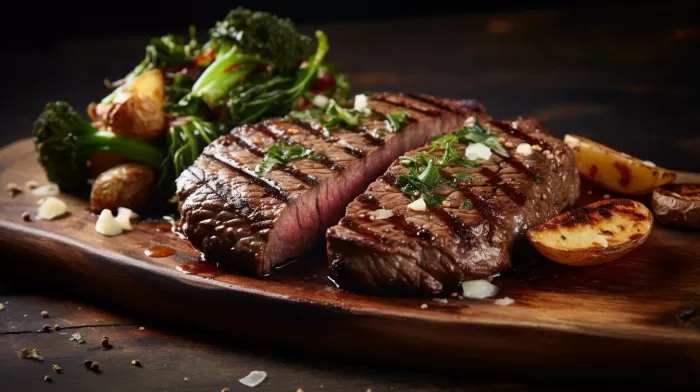In 2012, it was believed that scientists had discovered an exercise-stimulated hormone called irisin, which increased fat burning in the body. This led to hopes that a synthetic form of the hormone could be developed to mimic the benefits of exercise. However, recent research from Duke University has shown that this hormone does not actually exist, at least not in humans. Despite this news, there are still effective, natural ways to stimulate your body to drop extra fat and become leaner.
Eating more protein is a key factor in losing excess fat. The Paleo Diet, for example, works well for fat loss because it shifts the metabolism from starvation mode to a state where more food is available. Our bodies generally store fat because our metabolism has not evolved to recognize grain-based foods as sustenance, instead signaling starvation and conserving fat. By eating more protein, we give our bodies the message that food is abundant and that it’s safe to get rid of stored fat.
How Much Protein Should You Be Eating?
Mainstream medical advice recommends consuming around 50 grams of protein per day, but this may not be enough to counteract the effects of a diet high in bread and grains. Integrative doctors suggest eating one gram of protein for every pound of lean body mass. For example, a 180-pound man who is 20% body fat could increase lean muscle and decrease fat by eating 144 grams of protein per day.
Key Benefits of Protein
Protein provides numerous benefits for the human body, especially when consumed in combination with resistance training. It is crucial for building and maintaining muscle mass, as well as providing fuel for workouts. Adequate protein intake also helps to keep bones strong and healthy and can improve the immune system.
Choosing the Right Protein Sources
When incorporating more protein into your diet, it’s essential to choose high-quality sources. Lean meats like chicken, turkey, and fish provide healthy, low-fat protein options, as well as necessary nutrients like iron and B vitamins. Plant-based proteins such as lentils, chickpeas, and quinoa are also excellent choices, especially for vegetarians or those who prefer to limit their consumption of animal products.
Avoiding Processed Meats
While it’s important to increase protein intake, not all protein sources are created equal. Processed meats like hot dogs, salami, and bacon have been linked to an increased risk of cancer and other chronic diseases. Instead, focus on consuming unprocessed, whole foods that are rich in protein.
The Role of Exercise
Although increasing protein intake is essential for fat loss, exercise remains a crucial component of a healthy weight loss plan. Combining strength training with cardiovascular exercise is an effective way to burn calories and increase muscle tone. Regular physical activity can also boost your mood, help you sleep better, and provide countless other health benefits. So, don’t abandon the idea of incorporating exercise into your weight loss plan just because the “exercise hormone” was debunked – it’s still a vital part of the equation.
Bottom Line
While the discovery of a magic pill for weight loss may have been ruled out, there is still no substitute for the proven methods of consuming a healthy, balanced diet and engaging in regular physical activity. By focusing on these strategies and increasing your protein intake, you can effectively lose excess fat and achieve a lean, healthy body.



